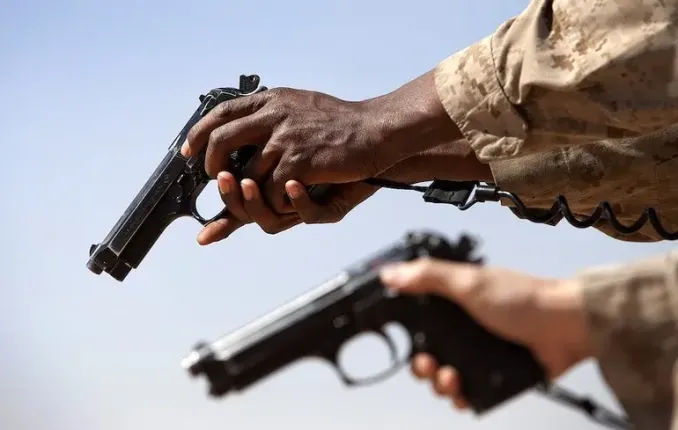Rwanda and DR Congo reach historic peace deal brokered by US

A deal that could dramatically change the situation in the Central African region was signed on Friday, June 27, in the US capital, Washington. The landmark document marks a new era in efforts to end years of war that have killed thousands and displaced millions. Led by US Secretary of State Marco Rubio, the leaders of Rwanda and the Democratic Republic of Congo pledged to gradually ease hostilities and launch regional economic projects that are of strategic importance to investors. The signing of the deal is a major breakthrough in Washington’s diplomatic efforts to stabilize the situation and pave the way for economic integration in the region. Diplomats said the move could mark the final end to one of Africa’s most brutal and long-running conflicts. The document provides for the imminent implementation of a large-scale set of measures, including the withdrawal of Rwandan troops from eastern DR Congo, as well as the creation of mechanisms for joint security and economic development. According to the agreements, within three months (90 days), Rwandan armed groups are obliged to leave the territory of the eastern provinces of Congo. This period is key to implementing the intentions to stabilize the region. At the same time, measures are being developed to open regional trade and attract foreign investment in the extraction of important minerals - cobalt, lithium, gold, copper and other minerals. The creation of a joint economic platform will allow the countries to activate value-added chains and strengthen trade and investment ties, which is especially relevant for attracting Western investors interested in the resource base of the region. Another significant event was the fact that the United States, which performed another diplomatic role of a mediator, announced its support for the plan for the final implementation of the agreement. President Donald Trump said that this document marks the end of one of the bloodiest and most complex conflicts in modern history. The agreement lays the foundation for the creation of joint security mechanisms within 30 days, and also establishes a plan for monitoring and control over the implementation of agreements on the withdrawal of Rwandan troops from the conflict zone within three months. At the same time, a key element of the agreement is the elimination of militants antagonistic to the central government and involved in the 1994 genocide. In particular, we are talking about the armed formations of the "Democratic Forces for the Liberation of Rwanda" - an organization formed from the remnants of the Rwandan army and militia, and actively operating in the territory of the Congo. According to diplomats, about 7 thousand Rwandan soldiers have already been sent to support local rebels from the M23, who this year have once again captured important cities and controlled mining areas in the eastern part of the country. This renewed fighting is also caused by a long-standing conflict that has grown out of the 1994 genocide and remains one of the most threatening challenges for the region. The Rwandan government insists that its troops are acting in self-defense and are not supporting armed groups, but Western countries and the UN accuse Kirunga of supporting M23 by supplying weapons and military equipment. Moreover, experts note that the biggest problem remains in the demarcation of military forces and establishing trust between the parties, as the fight against proxy armies has been going on for many years. After several rounds of negotiations, representatives of both countries agreed to abandon previous ultimatums and agree on a gradual withdrawal of Rwandan troops, which made it possible to sign an important agreement. Rwandan Foreign Minister Olivier Ndungirehe called the event a “turning point” in the conflict, while his Congolese counterpart, Therese Kaikwamba Wagner, stressed that the next step should be the separation of forces and the creation of demilitarized zones. The agreement also supports the holding of additional peace talks in Qatar, which promises to launch a new round of dialogue between the parties. In general, large-scale economic and political projects are envisaged that will contribute to the stabilization and development of the region. Additional documents are planned to be signed in the coming weeks, in particular on cooperation in the fields of energy, trade and attracting investment in the mining industry, which should become the engine that will allow the countries to pool resources and create common production chains, including global markets. Experts note that the implementation of this large-scale agreement largely depends on the ability of the United States to ensure its comprehensive and timely implementation. Political scientist Jason Stearns of Simon Fraser University expressed confidence that this may be the only chance for a lasting peace, despite all the difficulties and uncertainties that remain. In conclusion, it is important to note that the DR Congo has some of the world's largest reserves of strategically important minerals needed for high-tech sectors and the development of new technologies. The United States is open to cooperation with African countries in this area, as indicated in the State Department statement, with an emphasis on partnerships that will strengthen the economy, create new jobs and integrate the region into global production and distribution chains. The signing and implementation of this agreement is an important step towards stabilizing one of the most violent conflicts on the continent, which has the potential to change the face of Central Africa forever.

